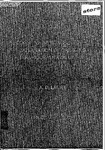COGNITIVE APPROACHES TO THE EXPLANATION OF GAMBLING BEHAVIOUR: AN EVALUATION
| dc.contributor.author | LAURIE, ANTONY DYSON | |
| dc.contributor.other | School of Psychology | en_US |
| dc.date.accessioned | 2012-08-10T08:26:35Z | |
| dc.date.available | 2012-08-10T08:26:35Z | |
| dc.date.issued | 2000 | |
| dc.identifier | Not available | en_US |
| dc.identifier.uri | http://hdl.handle.net/10026.1/1132 | |
| dc.description.abstract |
This thesis investigates three hypotheses in relation to the cognitive explanation of normal and problematic gambling behaviour. The "strong cognitive hypothesis" takes the view that if cognitive processes alone account for different levels of play, then the order of the events experienced during a task may be a good predictor of the levels of play. Four large scale experiments are presented focusing on the Illusion of Control, particularly the order effects originally observed by Langer and Roth (1975). Drawing on Hogarth and Einhom's (1992) belief adjustment model an adjusted methodology is employed making the paradigm resemble the real gambling decision making task more closely. The results of the Illusion of Control experiments suggest that the strong cognitive hypothesis can account for gambling in general, but there is no consistent support in favour of its role in explaining differential levels of play. Three questiormaire studies are then presented investigating the two alternative hypotheses assessed in this thesis. The "weak cognitive hypothesis" stipulates that an additional individual differences element is necessary to supplement the strong cognitive hypothesis in order to explain differential levels of gambling behaviour. Individual differences in the level of everyday general dissociation, the enjoyment and engagement in two forms of processing (Rational or Experiential, Epstein 1990), and in the extent to which heuristics and biases are used when making decisions are investigated. Factor analysis for the heuristics and biases investigation, particularly in relation to the understanding of the principle of randomness, reveals some evidence for the weak cogmtive hypothesis. Strongest evidence emerges in relation to the "integrative hypothesis" which stipulates that cognitive factors and processes are only important in relation to and interaction with other variables. The questioimaire studies investigate the role of erroneous beliefs and their relationship with the dissociation experienced within the gambling task. Using Structural Equation Modelling techniques, the results lead towards the generation of a new model of differential levels of gambling and the causal links between these variables and the loss of control are discussed. | en_US |
| dc.language.iso | en | en_US |
| dc.publisher | University of Plymouth | en_US |
| dc.title | COGNITIVE APPROACHES TO THE EXPLANATION OF GAMBLING BEHAVIOUR: AN EVALUATION | en_US |
| dc.type | Thesis | |
| plymouth.version | Full version | en_US |
| dc.identifier.doi | http://dx.doi.org/10.24382/4105 | |
| dc.identifier.doi | http://dx.doi.org/10.24382/4105 |
Files in this item
This item appears in the following Collection(s)
-
01 Research Theses Main Collection
Research Theses Main


